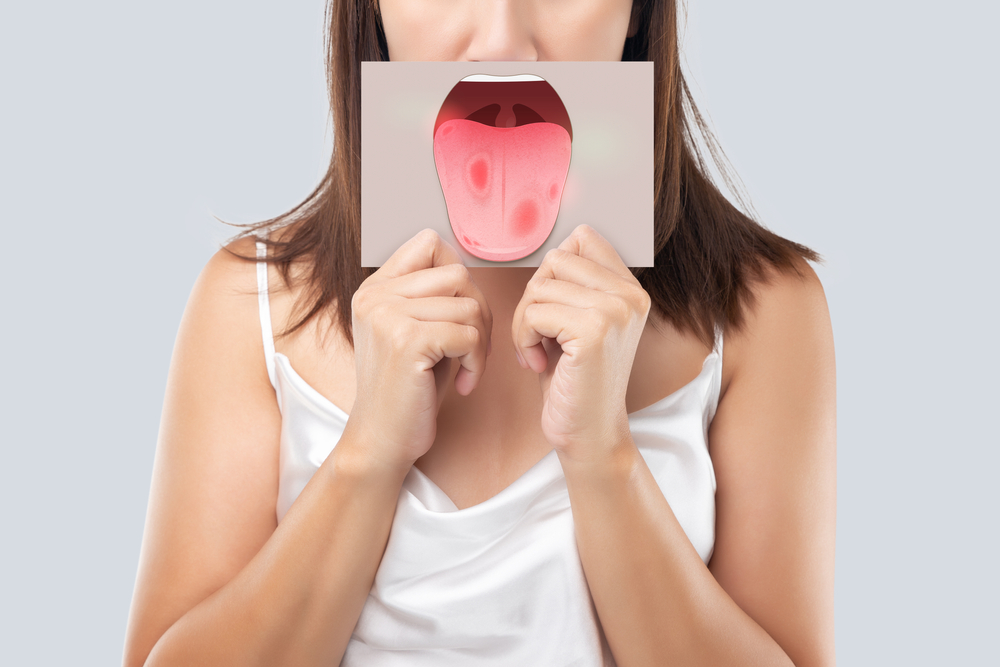Oral Cancer Check – Carlingford Dentist
Oral cancer, also known as Mouth cancer, is both very serious and fairly common. It does not get much publicity, but there are several thousand cases in Australia each year.
Oral cancer may appear as a small sore on the tongue or the inside of the mouth. Sometimes it appears to be just a discoloration on the surface, causing no pain, discomfort, or other symptoms. It is too easy to dismiss this as trivial. But if this sore really is cancer it will cause serious damage in a short amount of time.
We should have any suspicious sores, or any sudden changes in the mouth, checked by the dentist.
Carlingford Dentist – Symptoms of Oral cancer
If we experience any of the following, we should have them checked.
- – A sore on the tongue or in the mouth that never seems to heal.
- – A lump on the tongue or in the mouth or throat.
- – A discoloration, white or red inside the mouth.
- – Bleeding in the mouth for no apparent reason.
- – Numbness in the mouth or tongue.
- – Swelling in the jaw.
- – Loose or painful teeth
- – Pain when you chew or try to swallow.
- – Weight gain for no apparent reason.
- – Pain in the jaw or ear.
- – An unexplained change in the voice.
Carlingford Dentist – Causes and prevention of Oral cancer
The exact causes of cancer are only partially understood. But there are lifestyle and dietary habits that increase the risk.
Oral cancer has an increased risk if we do any of the following.
- Alcohol increases oral cancer, especially in concentrated forms.
- Mouthwash with alcohol raises the risk, especially if used several times per day.
- Smoking tobacco increases the risk. Cigarettes may or may not be an issue.
- Heavy Sun exposure is a risk.
- A diet with insufficient vegetables and fruit raises the risk. Lack of fibre might also be a factor.
- Fair skin people have a higher risk
- The constant irritation of the mouth from poorly made dentures, braces, or even a protruding tooth may lead to a cancerous sore.
- A weak immune system.
- Infections from the Human papillomavirus Virus (HPV) increase the risk.
- People over 40 have an increased risk.
Oral cancer can cause severe damage in a fairly short space of time. Early detection minimises the damage.
Dentists will look for signs of oral cancer during regular appointments. They will often notice potential problems before the patient does. If the patient does notice any suspicious signs, such as a sore that never seems to heal, they need to have this checked by the dentist immediately.
Carlingford Dentist
Oral cancer is serious and more common than is generally known. Early detection by the dentist during routine exams reduces the risk and minimises damage.
Information Disclaimer
The content of this article is meant for informational purposes only and should not be considered a source of professional advice, recommendations, or endorsements. It is not a substitute for seeking expert guidance or making well-informed decisions based on individual circumstances. Although we strive for accuracy and reliability, we cannot guarantee the information's completeness or suitability for all situations. Readers are urged to verify facts, consult experts, and consider their own context before taking actions or decisions based on this content. No warranties, explicit or implied, are provided regarding the accuracy, timeliness, or completeness of the presented information. Relying on this information is at the reader's own discretion and risk. We encourage readers to consult relevant professionals or experts for advice tailored to their specific needs. Neither the author, publisher, nor any affiliated parties will be held responsible for errors, omissions, or damages resulting from the use or reliance on the information in this article.

